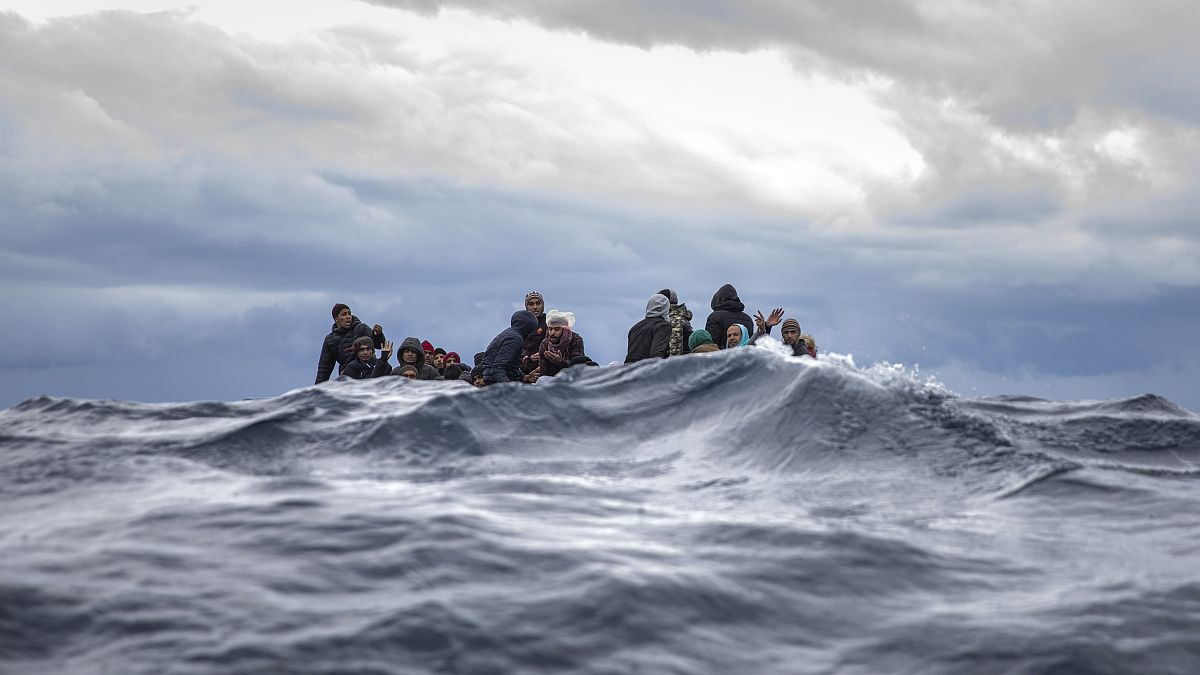While Human Rights Watch says the EU is showing “positive signs”, issues such as migration and growing intolerance were highlighted in the organisations annual global report.
The European Union has been praised for its willingness to tackle human rights challenges in EU states and the rest of the world in 2019.
The NGO Human Rights Watch (HRW) wrote that EU institutions paid greater attention to assuring the rule of law in 2019, in its annual report on human rights around the world.
However there are criticisms over the problem of rising intolerance against minorities, and the failure to coordinate a successful response to the issue of migration left “migrants and refugees paying the price,” the report argues.
Outside of Europe, the Director of HRW accused China of carrying out “the most intense attack on the global human rights system in decades”. In an introduction to the report, Kenneth Roth writes: “China’s government sees human rights as an existential threat. Its reaction could pose an existential threat to the rights of people worldwide.”
European Union showing “positive signs”
In its World Report 2020, HRW praised the EU’s efforts in defending human rights against efforts by some member state governments to “undermine democratic institutions” within their countries, highlighting in particular situations in Poland and Hungary.
In Poland, the EU Court of Justice (CJEU) ruled a law forcing judges out of the Supreme Court violated EU law, while ministers held debates on Poland’s laws which undermine its judiciary.
In Hungary, the EU brought proceedings over the denial of food to asylum seekers trapped at the border, and referred the country to the CJEU over a law criminalising those who give aid to asylum seekers.
It also highlighted a resolution adopted by the European Parliament on the rule of law and fight against corruption in the EU, noting the lack of protection for journalists in Slovakia and Malta, where investigations into the deaths of journalists are ongoing.
“We’ve seen positive signs in 2019 that the EU is willing to put into practice the human rights values the bloc is founded on,” said Benjamin Ward, deputy Europe and Central Asia director at Human Rights Watch.
However he noted that the “EU’s commitment to universal values will ring hollow as long as its governments and institutions turn away from the suffering of migrants and asylum seekers.”
Migration in Europe
HRW warns the EU’s credibility on rights issues risks being undermined by member states’ treatment of migrants and asylum seekers.
It pointed out cases of unlawful pushback at borders, a failure to launch search and rescue operations, and poor conditions within migrants camps as putting migrants in danger.
And an increased vote share for far-right parties in European elections highlighted the intolerance minorities communities continue to face in some EU states, the report said.
China posing "existential threat to rights"
HRW’s report was supposed to be unveiled at a press conference in Hong Kong, but its executive director Kenneth Roth was denied entry. According to HRW, China’s Foreign ministry spokesman Geng Shuang said deciding who could or could not enter was “China’s sovereign right”, despite Hong Kong supposedly having autonomy on immigration matters.
In the World Report 2020, Roth tears into China’s human rights record in 2019, accusing the country of constructing an “Orwellian high-tech surveillance state” and “a sophisticated internet censorship system”, all with the aim of creating a “Great Firewall” to insulate its people from criticism of the Chinese government.
In response to the report, Geng Shuang said Chinese people had the final say on human rights in the country, describing them as “in the best period of history”.
China has come under criticism for continuing its policy of stifling dissent, and extending its control over academia, religion and civil society.
Geng Shuang said he had not read the report but that such documents routinely “turned a blind eye on facts and confused right and wrong with no objectivity at all.”
Geng said the Chinese people had the final say on the state of human rights in the country, which he described as “in the best period of history.”
China has designated Human Rights Watch as one of the organisations it accuses of fomenting months of anti-government protests in Hong Kong.
While other governments commit serious human rights violations, “no other government flexes its political muscles with such vigour and determination to undermine the international human rights standards and institutions that could hold it to account,” Roth said.
China is accused of locking up more than 1 million Uighurs and other Muslim ethnic minorities in its northwestern Xinjiang region in camps where they are subjected to political indoctrination and pressured to give up their religion. China denies any abuses and calls the camps centres for job training and de-radicalisation.
The Human Rights Watch World Report 2020 reviews human rights practices in nearly 100 countries, and can be read in full here.
